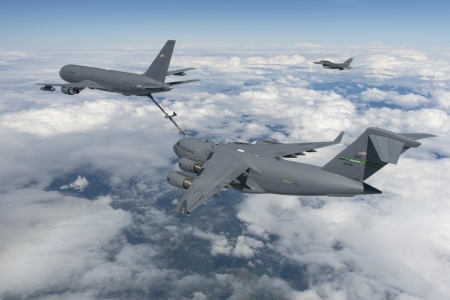You are here
Stronger transatlantic defence cooperation for a stronger EU
A robust EU policy in security and defence is instrumental in maintaining transatlantic cooperation and achieving global security.

The European Defence Action Plan (EDAP) is a promising development in this sense. Not only does it seek to strengthen Europe, but it represents an opportunity to reinforce NATO and contribute to global security.
The EDAP is based on three pillars: the creation of a European Defence Fund (EDF), fostering investments in small-medium-sized enterprises (SMEs) and strengthening the single market for defence. With these initiatives, the European Commission aims to make joint defence projects between the Member States more efficient, reinforce a competitive industrial base in Europe and strengthen security for its citizens.
Yet as it currently stands there is a real risk that key industry players will be left out of the scope of the action plan. Excluding non-EU companies that are heavily invested and have large parts of their supply chains based in the EU will have negative consequences for innovation and defence cooperation.
The benefits of closer transatlantic defence cooperation can be seen across Europe. The multinational F-35 joint strike fighter programme is an initiative specifically designed to have industrial participation from various EU Member States. It puts a transatlantic supply chain at the heart of the largest acquisition programme of the US Department of Defence. With the exclusion of key industry stakeholders from the EDAP, initiatives like these will be put at risk.
The EU’s strategy for autonomy in defence should be capability- and technology-driven, not nationally-driven. Ensuring that European armed forces receive appropriate equipment for the best value of money should be an overarching principle.
Moreover, there should be a certain level of reciprocity when granting public funding to companies, no matter if headquartered in an EU or NATO-member country. Current EU beneficiaries of US federal funding risk losing valuable opportunities if they were in turn disqualified from participation. Between 2008 and 2010 alone, the US provided annually some $1.4 to $1.7 billion of funding for research and development to non-US entities. Meanwhile, investment in research and development by the 27 European Defence Agency members has significantly decreased between 2006 and 2013, from €9.1 to €7.8 billion.
As the EDAP develops, legislators must keep in mind that strong transatlantic cooperation in defence and security matters require open and competitive markets built on a framework of reciprocity and trust. Stronger transatlantic cooperation will not only mean a stronger Europe, but ultimately a safer world.
By Florian Gleissner, Policy Adviser (FGL@amchameu.eu)
